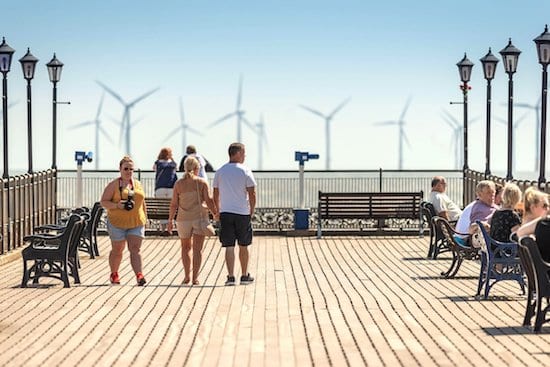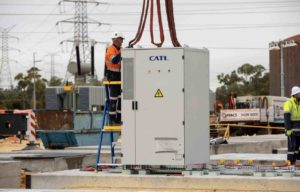Shell Energy Europe, one of the major energy supply businesses in the region, has signed a multi-year power offtake deal with Europe’s largest battery storage project – the proposed 100MW Minety battery.
Announced on Monday, the Shell Energy Europe (SEEL) offtake deal will not only allow SEEL and Shell subsidiary Limejump “to optimise the use of renewable power in the area” but also guarantees the development of the 100MW/100MWh Minety power storage project – dubbed the biggest battery project in Europe.
Backed by China Huaneng Group and Chinese sovereign wealth fund CNIC, the Minety project will consist of two 50MW batteries which, when fully charged, will provide 100MWh of electricity.
“Projects like this will be vital for balancing the UK’s electricity demand and supply as wind and solar power play bigger roles in powering our lives,” said David Wells, Vice President of SEEL. “Batteries are uniquely suited to optimising power supplies as the UK moves towards net-zero carbon system.”
Construction of the Minety power storage project began back in December in the small village of Minety, Wiltshire, located in the southwest of England.
Intended to be operational by the end of 2020, the project will apparently utilise a combined lithium iron phosphate battery (LiFePO 4 battery) and ternary lithium battery technology and is expected to be the largest battery energy storage project in Europe.
The project is expected to provide power for the equivalent of around 10,000 homes for a day before recharge is necessary.
Shell Energy Europe highlighted the pending importance of battery storage technology as “a key part in the transition to a low-carbon energy system” by providing system operators the ability to absorb “excess energy when supply exceeds demand in some areas, then supplying that power to the grid when needed.”
Rory McCarthy, a senior analyst at Wood Mackenzie Power & Renewables, expects projects of this size to become more common as we progress further into the energy transition.
“As the business case has gotten more challenging, we are seeing fewer but bigger systems being deployed on the market, which benefit from economies of scale, with a lower per-megawatt revenue target required,” McCarthy said.
The Minety storage project is one of the projects furthest along in its development, and represents battery storage projects of a scale the UK can expect to see more of: “We will likely see more [big projects] as a result of softened planning restrictions for stationary energy storage projects,” McCarthy added.










